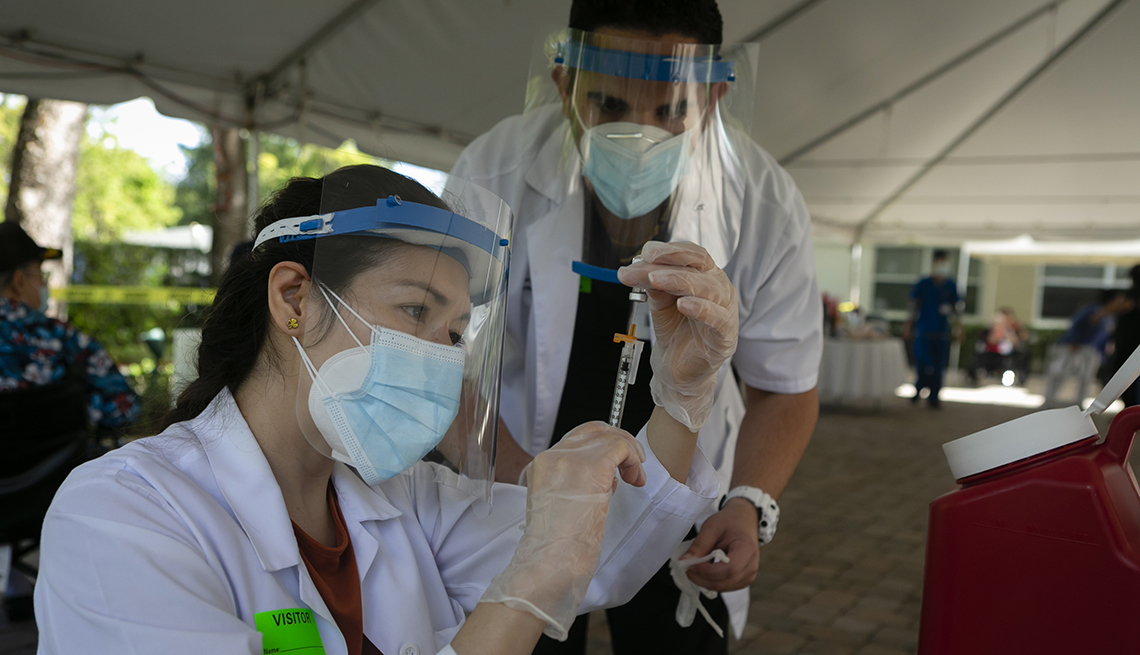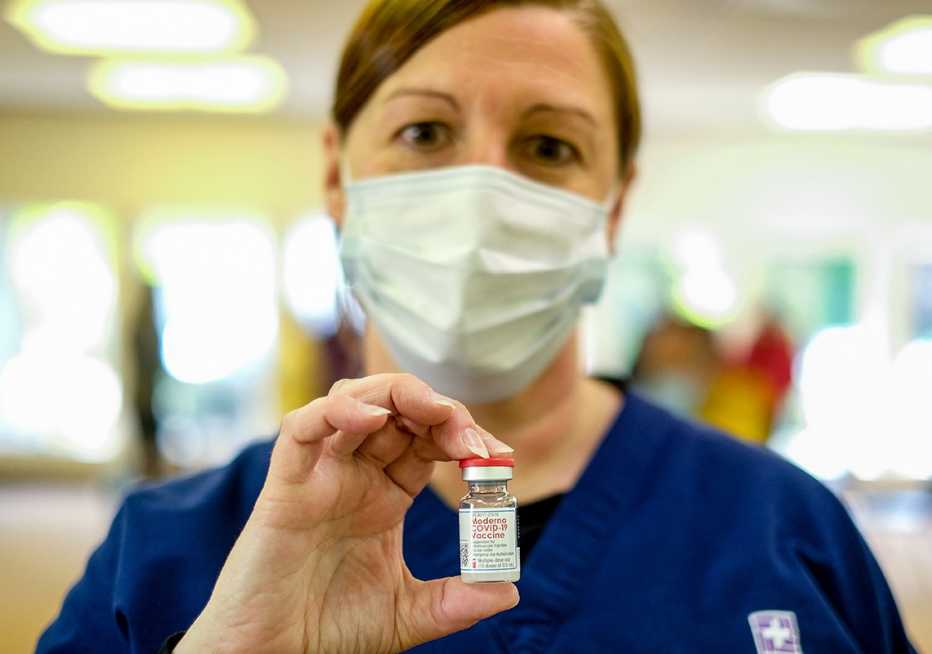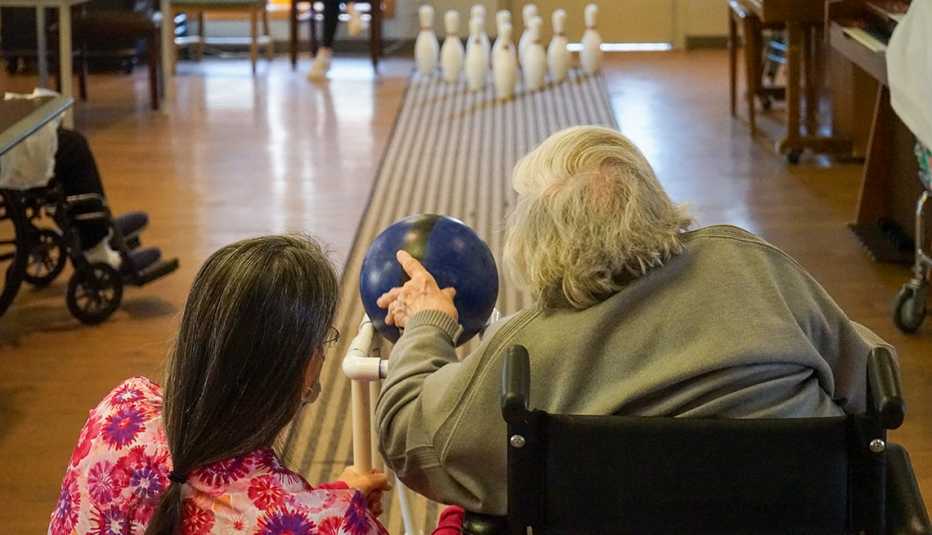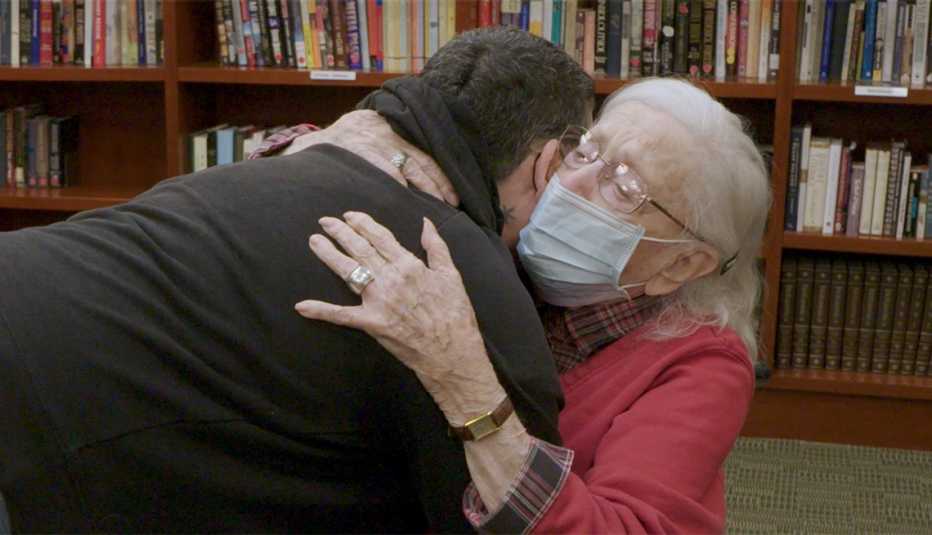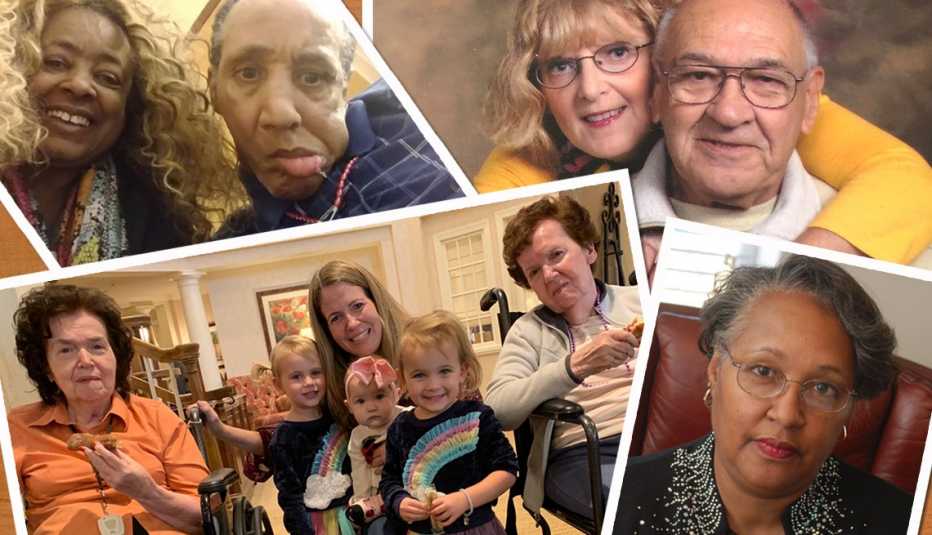Staying Fit
Aegis Living, a long-term care provider operating 33 assisted living, memory care and respite care communities in the western U.S., launched a COVID-19 vaccine education campaign in September, before the vaccines were even available.
A vaccines researcher described how the shots are made, tested and authorized on a company-wide call for Aegis’ 2,200 residents and 2,500 workers. An Aegis employee and her family, who all contracted COVID-19 last year, joined another call to share their struggles. Residents and staff not yet convinced could get one-on-one sessions with a medical expert.


AARP Membership— $12 for your first year when you sign up for Automatic Renewal
Get instant access to members-only products and hundreds of discounts, a free second membership, and a subscription to AARP the Magazine.
"You just have to meet people where they are in their hesitations,” says Dwayne J. Clark, founder and CEO of Aegis. “We're asking them to put a foreign substance in their body. It's a big deal.”
When COVID vaccines became available at year's end, Aegis enrolled in a federal program that brought on-site vaccinations to virtually all the country's nursing homes and assisted living facilities. By the end of March, all Aegis communities had hosted three rounds of vaccinations, with 95 percent of residents participating, mirroring a national trend of high resident uptake. Nearly 90 percent of Aegis staff also opted in — much higher than the national staff uptake rate, which was roughly 50 percent at the time.
Still, around 300 employees remained unvaccinated.
In April, as vaccine supply increased and everyone 16 and over became eligible for the shots, management announced that vaccinations for workers would be required — only those with a valid medical or religious reason were exempt. Since then, around 70 more workers have opted in, with more expected in the next month.
But some workers are still resistant. Clark is expecting to terminate 100 workers after the July 1 deadline for vaccinations: “We know we're going to lose some really good people.”
Across the country, a growing number of long-term care providers have started requiring COVID-19 vaccination for workers, citing low vaccine uptake rates, increased supply, more data supporting the safety and efficacy of the shots, and the continuing threat of the coronavirus as it evolves. Many more providers are mulling such mandates.
"There is more interest in exploring the possibility,” says Ruth Katz, senior vice president of policy at LeadingAge, a national association representing 5,000 nonprofit aging services providers. In January, only a handful of member providers were making COVID-19 vaccines a condition of employment, she says. “Now, when we have a member talk about mandating, all ears are open.”
But adopting a mandate is hardly an easy choice. Losing staff is a worry, and the industry already suffers from serious staffing shortages. Then there's the threat of litigation, given that COVID-19 vaccines are still only under emergency use authorization (EUA) by the U.S. Food and Drug Administration (FDA). And some worker advocates question whether it's fair to mandate among a workforce that commonly experiences low pay and scant benefits, has been disproportionately affected by COVID-19, and is disproportionately made up of Black workers, who are more vaccine-wary than other Americans.
"The question isn't whether or not vaccine mandates work — they do,” says Rachel Gur-Arie, a scholar at Johns Hopkins University and the University of Oxford who studies infectious diseases and ethics. The question, she says, is “At what price?”
Mandates gain traction
COVID-19 devastated America's long-term care community, including nursing homes, assisted living facilities and other senior care settings, killing more than 180,000 residents and infecting more than 1.4 million, according to the Kaiser Family Foundation. The virus is prone to spread in long-term care facilities, which account for almost a third of all U.S. coronavirus fatalities, due to required contact between staff and residents and close living quarters for residents who are often immunocompromised.
But COVID infection and death rates in these settings have plummeted from their winter peaks, new data shows. At Aegis, no residents and only six staff members — five of whom were unvaccinated — have tested positive since its communities were fully vaccinated. During 2020, pre-vaccines, roughly 700 residents and staff members tested positive for COVID-19.
To Clark, the turnaround justifies the decision to mandate vaccinations for workers. “We have 200 people that are angry at us, but I'll take that anger versus the loss of a resident's life,” he says. “The reward of saving lives and not going through this again is incredible."



























































